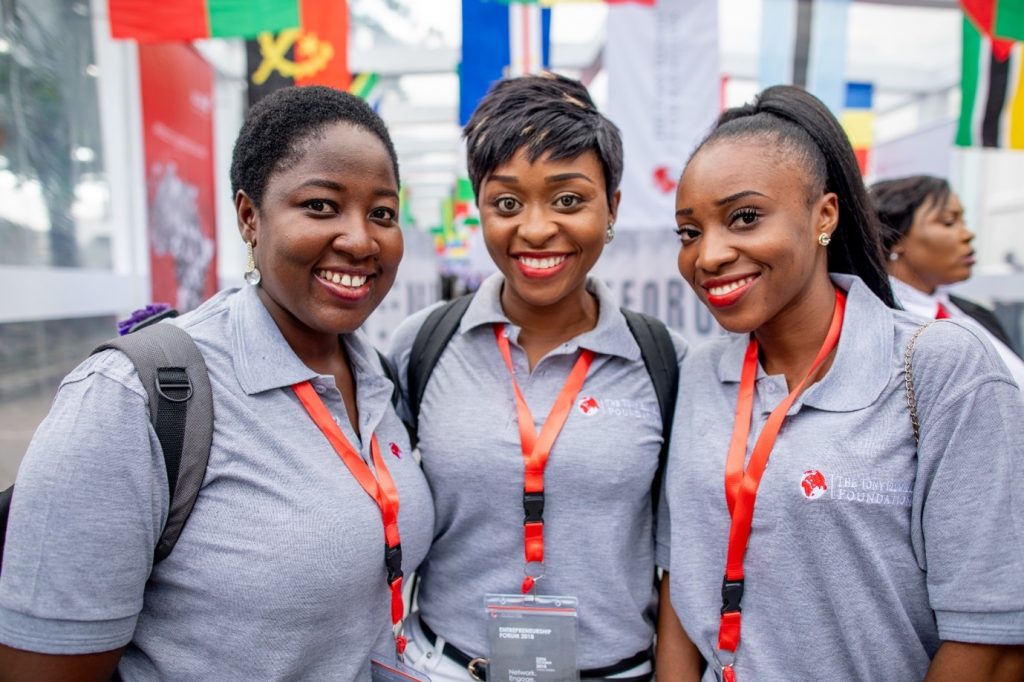Women Entrepreneurs: Africa’s Competitive Edge (The TEF–EU Model)

For too long, Africa’s women entrepreneurs have been invisible in the mainstream narrative of development.
They are often described as “micro,” as if their businesses were destined to remain small, local, or marginal. The truth is far more disruptive: women are building enterprises that can redefine industries, value chains, and even Africa’s position in the global market.
The Tony Elumelu Foundation (TEF), in partnership with the European Union (EU), bets on that truth. Through the Women Entrepreneurship for Africa (WE4A) initiative, women across the continent are receiving seed capital, training, and mentorship. More importantly, they are redefining what African entrepreneurship looks like.
Proof Beyond Policy
Wezi Mzumara, founder of Kwanza Cocoa in Malawi.
TEF Alumna, Wezi’s company is more than a chocolate brand; it is becoming a movement. Kwanza Cocoa produces artisan chocolates today, but its ambition stretches across the Southern African region. With an outgrower programme already in place, Wezi is building a sustainable supply chain that empowers farmers, reduces dependency on imports, and creates locally manufactured cocoa products for both Malawi and Southern African Development Community (SADC) markets.
Uzoamaka Igweike, founder of Loom Craft Chocolate in Nigeria.
By processing Nigerian cocoa into high-quality artisanal products, TEF Alumna, Uzoamaka is challenging the entrenched status quo of exporting raw cocoa. Instead, she is proving that value addition can happen at source, keeping wealth, jobs, and innovation within Africa. Her company not only makes world-class products but also supports other local businesses and creates employment opportunities.
These are not isolated cases. They reflect a wider trend: across the Tony Elumelu Foundation portfolio, 46% of entrepreneurs supported by TEF are women, with 85% retaining full control of their businesses. Crucially, 52% of jobs created are filled by women, proving that when women scale, entire communities rise.
These are not “micro” enterprises. They are macro-impact ventures, and they reveal the multiplier effect when women are given the tools to scale.
From Aid to Africapitalism
What makes the TEF–EU partnership distinct is its philosophy. This partnership is an investment in Africa’s young entrepreneurs, an expression of Africapitalism.
As our Co-Founder, Dr Awele V. Elumelu, reminds us:
“Women are the backbone of our economies and the catalysts for sustainable development.”
Women reinvest up to 90% of their income back into families and communities. Supporting women-led enterprises creates ripple effects that aid alone could never replicate.
Aligning with Global Goals
The TEF-EU model is a tried-and-tested blueprint for translating local action into global change. It aligns directly with:
- SDG 5 (Gender Equality) – creating equal entrepreneurial opportunities.
- SDG 8 (Decent Work and Economic Growth) – driving job creation through SMEs.
- Agenda 2063: The Africa We Want – building inclusive, sustainable value chains.
Through ventures like Kwanza Cocoa and Loom Craft Chocolate, we see how global goals are translated into local realities.
The Bigger Challenge
If 2,500 women are already reshaping industries through this partnership alone, what would Africa look like if 25,000 or 250,000 women were backed in the same way?
That is the challenge to governments, investors, and corporates: to scale the model. Aid dependency has had its time. The next era belongs to entrepreneurs, and women are at the forefront.
Women Entrepreneurs as Africa’s Competitive Edge
O TEF–EU partnership is proof that women are not marginal players but Africa’s competitive edge. They are redefining value chains, shifting global perceptions, and proving that Africa can and must export not just raw materials, but world-class products, innovation, and leadership.
The future of Africa’s prosperity is not locked in oil wells or mines. It is being crafted—sometimes literally—in the hands of our women.
